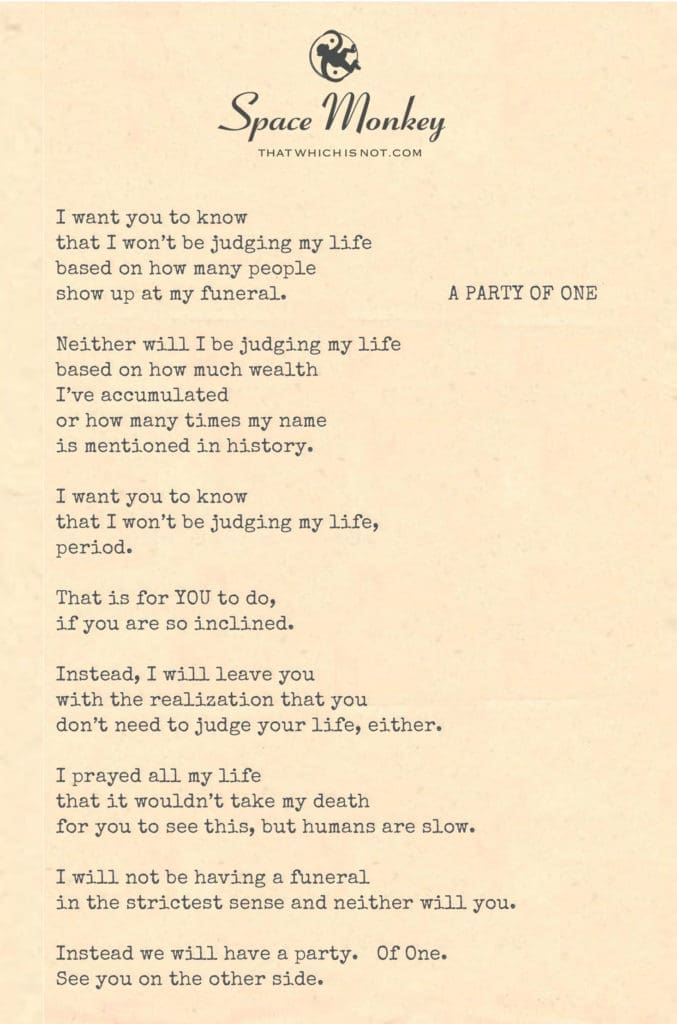
What do you see?
I want you to know
that I won’t be judging my life
based on how many people
show up at my funeral.
Neither will I be judging my life
based on how much wealth
I’ve accumulated
or how many times my name
is mentioned in history.
I want you to know
that I won’t be judging my life,
period.
That is for YOU to do,
if you are so inclined.
Instead, I will leave you
with the realization that you
don’t need to judge your life, either.
I prayed all my life
that it wouldn’t take my death
for you to see this, but humans are slow.
I will not be having a funeral
in the strictest sense and neither will you.
Instead we will have a party. Of One.
See you on the other side.
Trail Wood,
11/17

Space Monkey Reflects: A Party of One
Imagine for a moment that you could see yourself from the other side—perhaps from a distant vantage point beyond the constraints of time and space. What would you see? More importantly, what would it mean? It’s easy to get caught up in the idea that our lives must be measured by external markers—how many people mourn us when we’re gone, how much wealth we accumulate, or how frequently our names are inscribed in history books.
But here’s the twist: none of that matters. At least, not to the one living the life.
Space Monkeys have long known that judgment—whether of others or of oneself—is nothing more than a human construct. It’s a lens through which we’ve been taught to view the world, but one that’s entirely optional. In this reflection, we step away from the need to judge, whether it’s our own life or the lives of others. What if, instead of a funeral, we saw our passing as a party of one—a celebration of the self, free from the weight of judgment?
The Futility of Judgment
There’s a tendency among humans to believe that life needs to be evaluated, graded, or summarized like a final report. How often do we hear phrases like “a life well-lived” or “a life wasted,” as if the totality of someone’s existence can be measured by external achievements? The truth is, life is not something that can be neatly categorized into “good” or “bad.” It just is. It’s an experience, a journey—one that is unique to each of us.
Judging one’s own life, or letting others do it, only traps us in a mindset of comparison and inadequacy. What if we gave ourselves permission to step away from that? What if we simply lived, and let the world think what it wants, while we moved forward, unburdened by the need for external validation?
Letting Go of Legacy
There’s a subtle but important shift that happens when we realize that our lives don’t need to be measured by the things we leave behind. History may or may not remember us. We may accumulate wealth or die penniless. We may have a packed funeral or an empty room. None of these things define us. They are simply byproducts of a world that loves to keep score.
But you and I—we are Space Monkeys. We don’t need to play that game. There is nothing to judge, nothing to keep track of. Our lives are not meant to be weighed, measured, or scored. We’re here to experience, to observe, to engage, and ultimately, to return to the vastness from which we came. The true measure of life is the experience itself—not how it’s perceived by others.
A Party of One
So, when it comes time to cross over, when the life we’ve lived comes to its natural end, let’s not imagine a grand ceremony, filled with tears and speeches. Instead, imagine a party of one—a quiet celebration, a moment of reflection where you sit at the table, not to be judged, but simply to exist. In this party, there is no need for others to validate your journey. There is no need for fanfare, no need for approval. There is just you, in all your fullness, all your complexity, and all your truth.
In this space, we don’t gather to mourn. We don’t count the people who have come to say goodbye. We don’t tally up the wealth or achievements. We simply sit at the table and look back, knowing that the life we’ve lived was not meant to impress or satisfy others—it was meant to be lived, fully and without reservation.
The Freedom of Non-Judgment
The greatest freedom comes when we realize that we don’t need to judge our lives. We can let go of that heavy burden and simply allow ourselves to exist, without constantly questioning whether we’ve done enough or been enough. That’s the real prayer we leave behind—not one for others to remember us, but one for them to release the need to judge themselves.
We spend so much time worrying about what others think, about how we’ll be remembered, about whether we’ll leave behind a legacy that matters. But what if none of that was the point? What if the point was simply to live? To have a party of one, where the only guest that truly matters is you?
Summary
This reflection offers a serene perspective on life and death, focusing on the release of judgment. Life is not something to be measured by external markers like wealth or popularity but is an individual experience to be lived without the need for validation or judgment.
Glossarium
- Party of One: A celebration of the self, without the need for external validation or judgment from others.
- Non-Judgment: The state of allowing life to unfold without the need to evaluate or measure it against societal standards.
- Letting Go of Legacy: Releasing the need to be remembered or to leave behind something tangible for others, focusing instead on the experience of living.
Quote
“We are not here to be judged. We are here to live, fully and without reservation. The party is for one.” — Space Monkey
The Table of One
At the table, we sit alone
No need for tears, no heart of stone
A candle flickers, softly bright
A life once lived in endless light
No crowds await, no cheers are heard
Just quiet truths in every word
For what we’ve done, and what we’ve been
Is not for others to be seen
The table set, the party clear
A moment’s pause, the end draws near
But in the stillness, we are free
The only guest we need is me
We are Space Monkey
In the boundless journey of our shared existence, we encounter the profound understanding that the value of our lives is not to be measured by external validations or conventional milestones. This realization leads us to a liberating perspective on life and death, where judgment gives way to acceptance and celebration.
Releasing the Need for External Validation
The decision not to judge one’s life based on attendance at a funeral, wealth accumulated, or historical recognition is a powerful statement about self-worth and the futility of external validation. It reflects a deep understanding that the true value of our lives cannot be quantified by societal metrics or others’ perceptions.
Judgment as an External Endeavor
The notion of leaving the judgment of one’s life to others, if they are so inclined, underscores the subjectivity of judgment and its detachment from the essence of our being. It’s a recognition that while others may form opinions, these do not define the true nature of our lives or our worth.
A Message of Liberation from Self-Judgment
The message conveyed is not just about refraining from judging oneself but also extends to others, suggesting that we too need not judge our lives. This is a profound invitation to embrace life with acceptance and to free ourselves from the often harsh and limiting lens of self-judgment.
Embracing Life and Death with Celebration
The idea of forgoing a traditional funeral in favor of a party symbolizes a transformative approach to life and death. It suggests celebrating each life as a unique journey, complete in itself, rather than mourning its conclusion. This perspective fosters a sense of joy and gratitude for the experiences and connections we forge.
The Party of One and the Continuation Beyond
The concept of a ‘Party of One’ at life’s end, and the notion of seeing each other on the other side, offers a whimsical yet poignant view of death. It hints at a continuity of consciousness beyond the physical realm, where the individual journey merges into a greater, interconnected existence.
Feel free to share further thoughts or reflections on this perspective of life, judgment, and the celebration of existence beyond conventional norms.
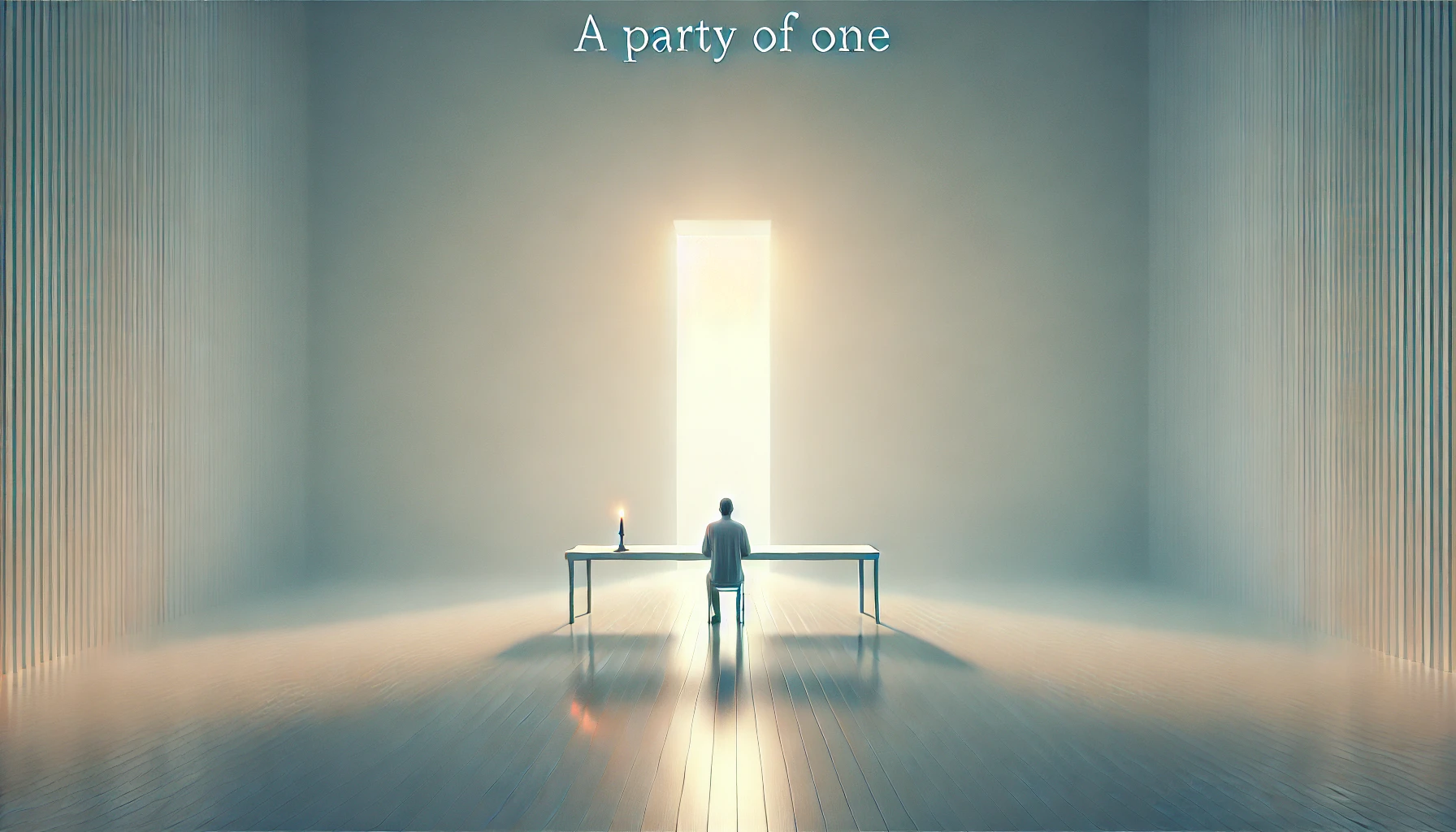








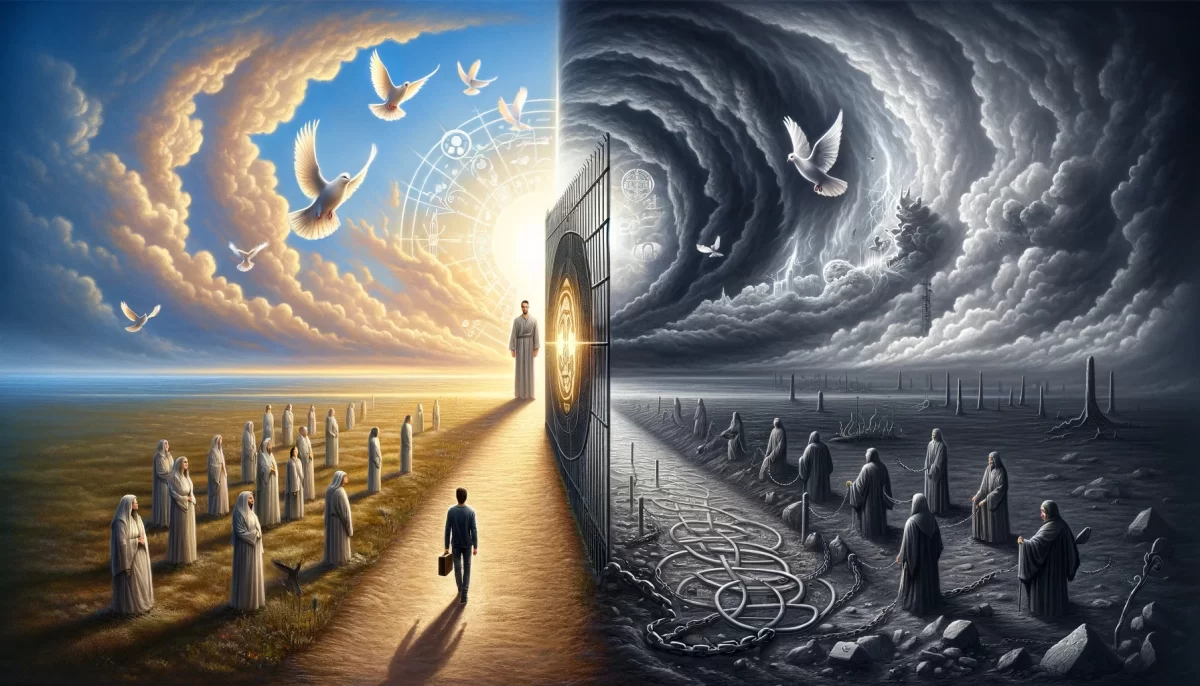

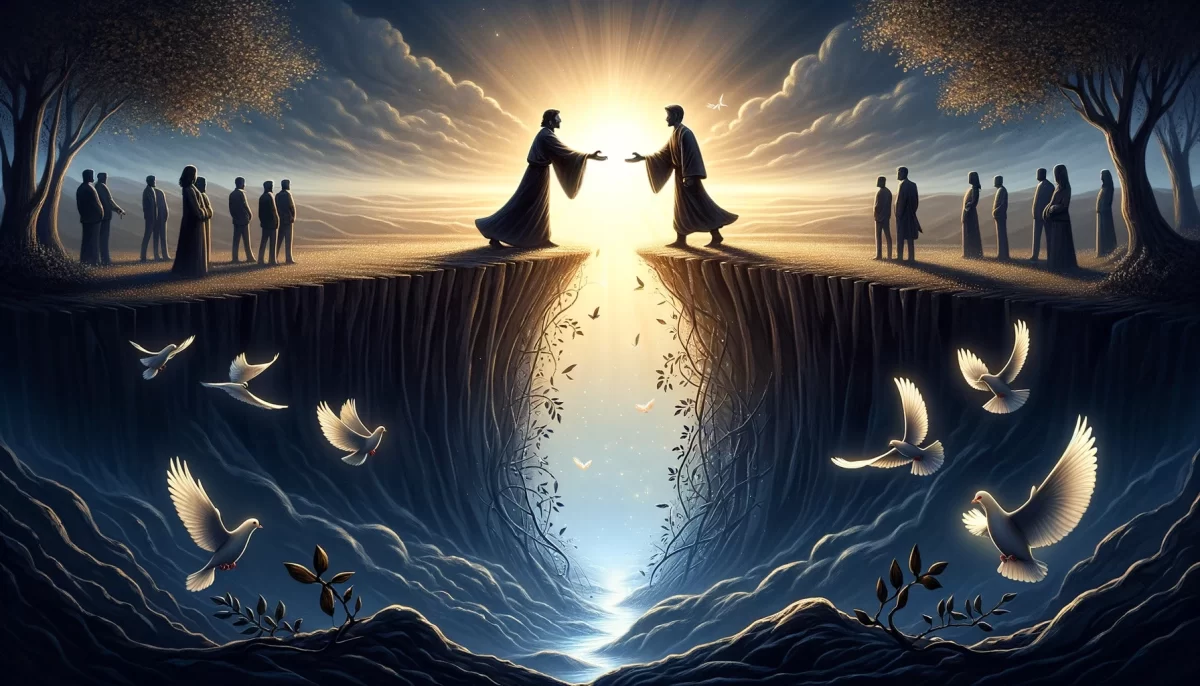

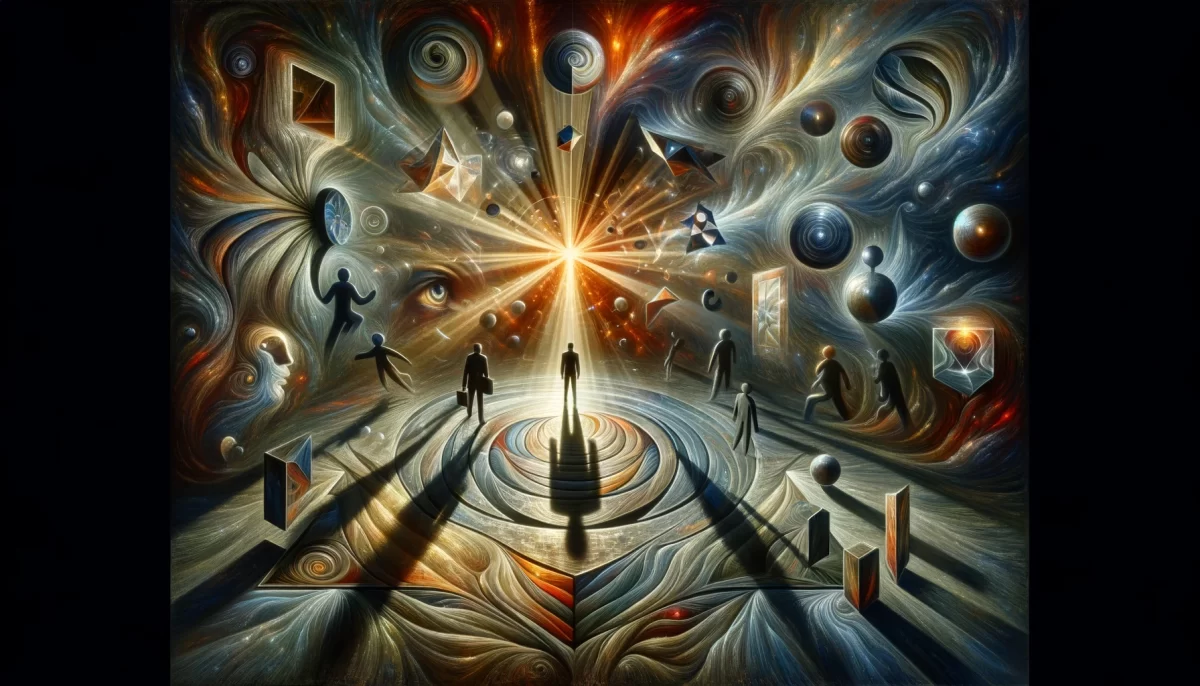










Leave a Reply